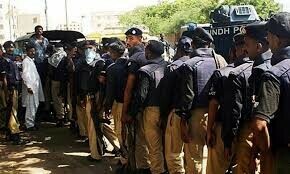Pakistani state seems to have been in a love-hate relationship with Fehmida Riaz. She faced a sedition case, had to be in exile but was also given a presidential Pride of Performance Award.
Introducing her to the audience as a formality at the beginning of a session at the LLF that was meant to launch her book ‘Hum Log’, writer Khaled Ahmad said Fehmida was not treated well by the state most of the time.
She got popularity or ‘notoriety’ in 1973 with the publication of ‘Badan Durida’ -- a book comprising her ‘rebellious’ poems not expected by many from a woman.
“I have a composite identity,” she told the audience. “After migrating to Pakistan, my parents settled in Hyderabad (Sindh), but my mother went to Meerut for delivery when I was born.” So she was at the same time a Sindhi and an ‘Indian’, but she owns Sindhi identity.
She says that among Urdu writers, she has always been feeling like an ‘outsider’.
Recalling ‘hard times’, she said under Zia regime there was so much oppression in society and she was hunted by the regime because of her progressive views.
“As many as 14 cases were registered against me and one of them carried sedition charges for which I could be hanged,” she said.
“At that time my children were quite young; one of them just two-and-a-half-years old. As it was not possible for me to go behind the bars, I went to India while I was on a bail.”
In India, Amrita Preetam was her good friend and since Fehmida had once met Ms Indra Gandhi when she was in opposition, she (as prime minister) knew her and that helped her stay there for seven years. But back in the country she was dubbed a ‘traitor’, especially after publication of her poem ‘Dilli’ (Delhi) in which she had called the city ‘her mother’.
About ‘Hum Log’ published by Oxford, she says it is about the people of three countries – Pakistan, India and Bangladesh – and “what they have done to themselves and to one another.”
About ‘Zinda Bahar’ a story in the book, she says it is a woman’s quest for love who moves from place to place and person to person to look for it. The book also deals with the dilemma of the displaced Beharis who were considered outsiders in their own country.
It also throws light on phenomena of MQM, which she says was re-birth of Muslim League. Both parties, she says could not come up to the expectations of the lower middle class that was once their backbone. Same was the case with BJP in India, she said.
She says establishment has been reckless. “They have been pitching one group against another to get themselves strengthened,” she adds.
“Our present leaders don’t have the acumen to lead us because they are not well-read,” she says.











































Dear visitor, the comments section is undergoing an overhaul and will return soon.